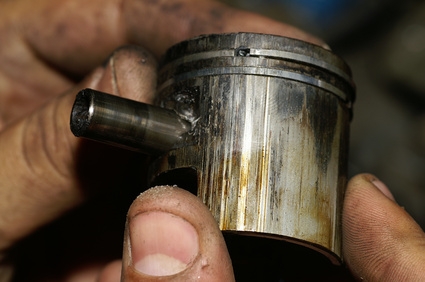
An engine will quickly self destruct without oil. However, having oil in the engine is not enough. You must have the right oil to assure engine longevity. The composition of engine oil is always evolving as new discoveries are made, so the defined classifications follow suit with the evolution of oil quality. The American Petroleum Institute (API) defines specifications for engine oils, such as SG or SE. Engine oil manufacturers, in turn, label containers with the oil rating.
In 2010, the API states that the classifications of SG and SE are obsolete. This is due to the chemical evolution in oils. As chemists make new discoveries, the old oils are phased out. For example, outdated oils thickened up in cold weather. In 2010 this is no longer the case with the advent of modern additives. Oils with the classification of SG and SE are antiquated technology.
The API cautions that any oil with a classification of SE should not be used in engines built after 1979. Furthermore, the SG classification cannot be used in engines made before 1993. The recommended correct oil to use for all gasoline engines, in any year, is the classification SM. For engines made 2001 and before, classification SJ is acceptable. For engines made 2004 and before, classification SL is acceptable.
If you are unsure as to what classification is suitable for your engine, the original manufacturer has the recommended oil information for each specific engine. If your engine is under warranty, using the wrong classification may void the warranty. Keep in mind the API states that any oil having an SM classification is suitable in all gasoline engines. For diesel engines, other classifications of oil are recommended.